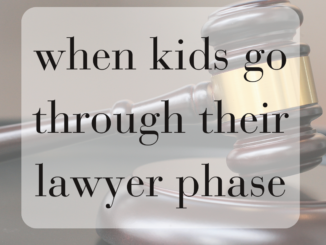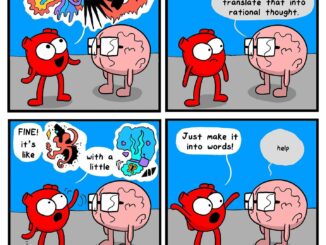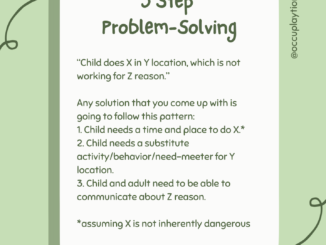“Sometimes, my son asks me a question. If I tell him I don’t know the answer—and I truly don’t know the answer—he’ll get mad and protest, ‘you DO know!’ How do I explain to him that I really don’t? How do I make him understand?”
This is one of those instances where parents commonly think that if they could just explain something well enough, then their child would understand and presumably be satisfied. What parents often don’t realize is that no matter how well you explained, you still wouldn’t get to the emotional heart of the protest.
Here’s what I mean.
Him: [question?]
You: I don’t know!
Him: You DO know!
You: I *don’t* know! [Explanation about how you don’t actually hold all information and knowledge in the entire world.]
Him: [Still frustrated, because he didn’t get an answer to his original question, and now he feels like you might be ‘against’ him about it for some reason.]
If he had more sophisticated language with which to express the emotional concept that he’s saying, it might sound like this…
Him: [some question?]
You: I don’t know!
Him: What do you mean, you don’t know? Well then how am I supposed to find out? I thought you were the point of contact for all the knowledge in the world, what are we supposed to do now???
So then when you reply to that by trying to explain to him that you don’t know everything in the world, the two of you are talking past one another. You’re hoping to convince him of your own not-knowing. And you’re hoping that somehow that will make him feel better. But it’s not working, because he didn’t want to know that you don’t know something. And even if he believed you didn’t know it, that still wouldn’t answer his question. He would still feel dissatisfied.
There’s a couple ways you could go about this instead. If it’s the kind of question that *has* an answer, you just don’t *know* the answer (“why do rainbows only come in the sky sometimes?” “why does the moon come out during the day?” “how many people have ever been alive?”), you could start understanding his protest to actually mean something like what I described above — and answering accordingly. “Wow! What a great question! I don’t know it myself but there’s places we could find out. We could look it up on the internet together, or look it up in a book/at the library, or…”
And if it’s the kind of question that doesn’t have an answer, or doesn’t have a researchable/find-out-able answer (“why did he say that to me at school?” “where was I before I was born?” “why did our pet have to die?”), you can answer or at least acknowledge the emotional heart of the question, even if you can’t answer the specific question.
You: I don’t know.
Him: You DO know!
You: (choosing to instead hear it as expressed above, not as the literal words he’s saying) It’s pretty frustrating that there’s things out there that I/we just don’t know, right? It makes me feel frustrated too sometimes. I have big questions but sometimes there aren’t answers.
or
You: I wish we could know, too, buddy. I sometimes like to think about it, even though I don’t know for sure. Do you have any thoughts about it?
And, of course, there’s always the fact that these types of conversation might still lead to him feeling frustrated, sad, nostalgic, wistful, melancholy, angry, or however else he might feel…because he’s a human and these are all part of the human experience. And it’s not our job as parents to take that away from our kids, or to out-logic it for them. That’s an impossible task, anyway.



